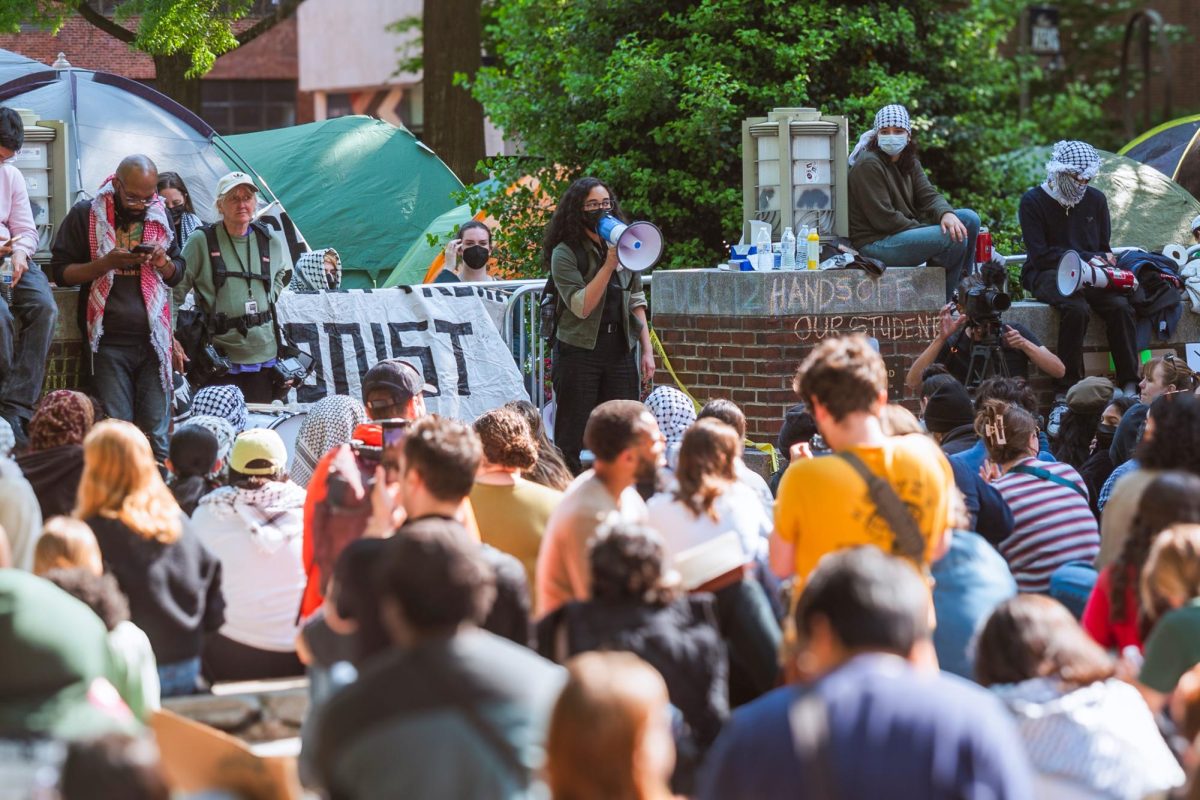Sebastian Hazzard had just finished his first semester at GW in 2003 when he was deployed to Iraq. Today, he wears a new uniform.
Hazzard, 32, signed on to the University Police Department in May, joining about 14 other veterans on the force. He was in charge of security checks on bases overseas, and said he has translated the skills he learned in Iraq to GW’s campus.
“A lot of it goes with questioning, relating to people, being able to make good decisions quickly,” Hazzard, a member of the Army Reserve, said. “Being able to stand for something other than your own self-interest is something that appeals to me, and I think it appeals to a lot of people in the military and to people in law enforcement.”
Former armed services members, who make up about 15 percent of GW’s police force, have served in military conflicts ranging from the wars in Afghanistan and Iraq to missions in Korea.
University Police Chief Kevin Hay said someone with a background in the armed forces makes a prime applicant to the department.
“We love to hire military veterans,” Hay, who has led UPD since 2010, said. “Because they understand discipline, they understand working long hours and we like to leverage the military training they have.”
Nationally, veterans are more likely to enter law enforcement, though the Bureau of Labor Statistics does not break down the percent of veterans who enter police forces compared to other types of security professions.
With thousands of military men and women leaving their posts in the Middle East in recent years, organizations such as the International Association of Chiefs of Police have taken steps to transition former combat soldiers into police roles, publishing guidebooks on how to apply for police training and cope with post-traumatic stress disorder.
Capt. Darrell Johnson, a former Marine, said the transition from soldier to officer is less abrupt because of similar structures in both police departments and military organizations.
“It’s not hard to go from one – from being in the military – to being on any type of police department because you’re used to following rules and regulations and guidelines,” said Johnson, who has worked for UPD for more than three decades.
Johnson, a 56-year-old D.C. native, added that he uses his military training every day on the job.
“When I walk into a room or into a building I’m unfamiliar with, I’m always looking for more than one way out of that building. I’m always looking for what goes on around me, who is standing where, things that look out of place,” Johnson said.
Johnson, who joined the Marine Corps straight out of high school, carried out his duties in Japan, the Dominican Republic, Spain, Panama and, finally, Korea, all in just a four-year period.
The first person in his family to join the military, Johnson enlisted when he didn’t hear back about a scholarship application to North Carolina A&T State University. He found out while he was stationed in Japan that he had won the scholarship.
When Johnson came back from overseas, he remembers getting lost on his way home because D.C. had just built its Metro system. He spent years working as a security guard and also worked at an engineering company before he came to GW.
He worked the midnight shift as a UPD officer for more than five years, taking classes in information systems during the day.
Johnson lauded the University’s recent push to expand support for veterans. He pointed to Mel Williams, a retired vice admiral the University hired as senior associate dean for veteran programs this year, who has helped create new counseling and career programs.
“I just wish that we had those same programs when I came home,” said Johnson, who wears a series of ribbons on the right side of his uniform to represent police training programs he has led.
On campus, Hazzard said he immediately knows whether a person has served in the armed forces.
“You can typically walk down the street and tell someone who served in the military versus someone else just by the way they carry themselves, or the way they’re dressed or their haircut,” Hazzard said.







